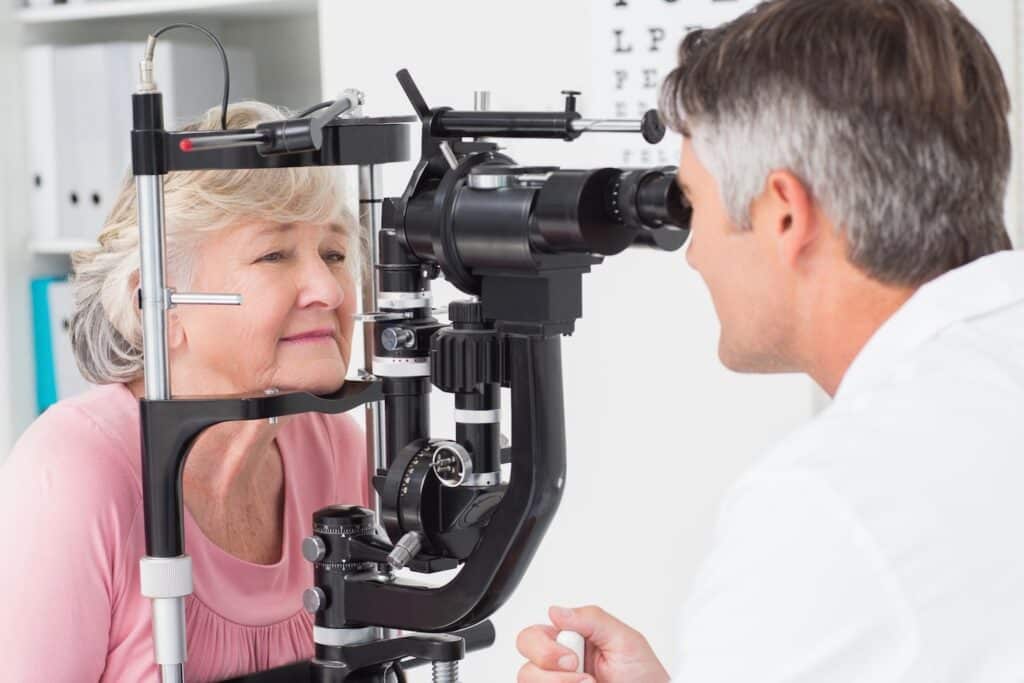Just like dental health, preventive measures toward eye health are overly important. Unfortunately, most people don’t consider the importance of frequent eye exams because they aren’t of senior age or haven’t experienced eye issues. However, you should have regular eye exams even when you have perfect vision or experience eye problems. This is because most eye problems are asymptomatic during the early stages and impossible to notice without routine eye exams.
What Does “Regular Eye Exam” Mean?
While a regular eye exam doesn’t have time limitations, your visits to an ophthalmologist should be dictated by age and predisposing risk factors. For instance, developing children should be taken for regular eye exams by the age of six months, three years, and before joining the first grade. Maintaining a regular eye exam for developing children is important as it helps detect any upcoming vision problems during their development stages.
Toddlers should complete a minimum of one eye exam before the age of 5. This helps uncover childhood eye problems such as amblyopia and strabismus that can be treated with ease if caught early but difficult to treat with advancing age. If not treated before the age of 7, these conditions remain permanent in the child’s life. Lazy eyes are also obvious to detect, but may sometimes develop slowly.
As mentioned, you should also take your child for an eye exam before they start schooling. Children with undetected and untreated vision problems often have difficulties focusing in the classrooms. Children should also go for continuous eye exams as the eyes develop with the growing body and as they continue with school. This is because even if your child had a 20/20 vision before starting school, unexpected changes might occur slowly.
After the childhood years, you should go for eye exams after every year, until the age of 60. Patients above 60 years, otherwise referred to as seniors, should go for eye exams yearly. This is because any upcoming vision condition could indicate an underlying medical problem. As such, advanced age patients with medical problems such as rheumatoid arthritis should have frequent eye exams to ensure that the eyes have not been affected by the medical condition.
Risk Factors for Eye Diseases
Those with predisposing risk factors should go for eye exam frequently. Some of the risk factors for eye conditions include a family history of glaucoma, diabetes, hypertension, and macular degeneration. Patients with prescription medications that cause dry eye side effects should also routinely go for an eye exam. Such side effects cause serious discomforts and often increase the risk of eye infections.
Contact lenses are also another risk factor for eye diseases. Patients presenting with such symptoms should desist from smoking. This is because smoking significantly increases the risk of developing glaucoma, diabetic retinopathy, cataracts, and macular degeneration with advanced age.
When Not to Wait for Regular Eye Appointment
As mentioned, an annual eye exam is enough to keep your eyes healthy. However, some situations may necessitate scheduling an eye exam more than once per year. This is common if you experience vision changes before your scheduled appointment date or those aged above 50. Below are some vision changes signaling that you shouldn’t wait for your scheduled eye appointment.
- Sudden sensitivity to light – newfound inability to tolerate moderate to high-intensity light indicates a developing eye infection.
- Blurred vision – unexpected blurred vision could indicate developing eye conditions. For those with already diagnosed eye problems, blurred vision could mean that you need to update your glasses.
- Loss of night vision – if you currently have difficulties driving at night, you might have an impending eye problem. This could be a symptom of developing eye disease.
- Bright flashes – sudden appearance of floaters is a symptom of developing retinal detachment that causes permanent blindness. It should be treated immediately if it occurs alongside peripheral vision.
- Frequent migraine headaches – migraines often have a significant attachment to eye conditions. They could be due to eyestrains or nerve problems.
- If you hold books or written documents away from your face or too close to read clearly.
- Those who get dizzy, motion sickness, or can’t follow a moving target.
- After a head trauma.
You shouldn’t wait for your scheduled eye exam if you experience any of the above symptoms. Note that the benefits of the exam go beyond your eyes. The optician can detect other medical conditions associated with eye problems, such as cancer, hypertension, and diabetes during the exam.
Schedule an Eye Exam
There are several benefits of having your eyes checked routinely, even if you don’t have any vision problems. After the first exam, you should observe other scheduled appointments with the utmost priority. Visiting a licensed optician can make your eye exam a breeze. Apart from vision assessments, your optician will also test color blindness, cover tests, refraction test, glaucoma tests, ocular motility tests, and retinoscopy, among others.
Schedule an eye exam with Linda Vision by calling (626) 382-2020 today.

